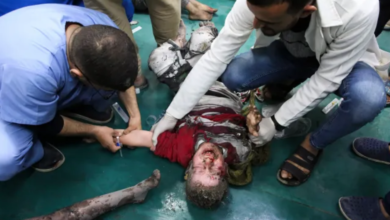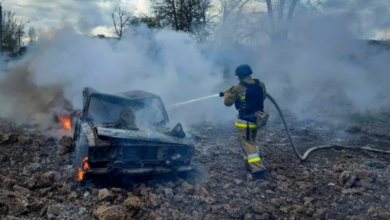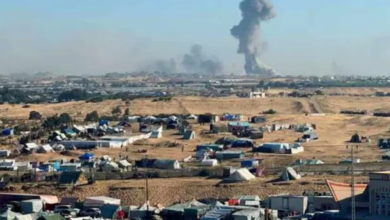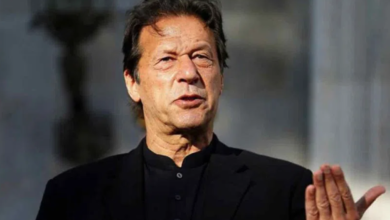Robert Mugabe’s daughter’s wealth revealed in divorce case listing 21 farms and Dubai mansion

A divorce case involving Robert Mugabe’s daughter has listed property worth millions of pounds including 21 farms that were grabbed violently from former white commercial farmers, land in affluent suburbs, a mansion in Dubai and cash, shocking impoverished people in Zimbabwe.
The divorce between Bona Mugabe and husband Simbarashe Chikore has laid bare the family’s wealth, with the couple fighting over assets including land worth millions of pounds, property, more than $1m in cash and luxury vehicles including Range Rovers.
The two were married at a lavish wedding in Harare in 2014 when Mugabe was still in power. The veteran ruler was removed as president and party leader of Zanu-PF and was replaced by Emmerson Mnangagwa in November 2017 and died in 2019 aged 95.
Ms Mugabe said the marriage had irretrievably broken down but Mr Chikore claimed it could be rescued with counselling.
The property listed in court papers seen by i include a 6,385-hectare farm named Surtic, as well as land in the affluent Harare suburb of Helensvale. This includes a property worth $40m (£32m), another worth $11m (£8.8m) and other plots each worth between $100,000 and $600,000 (£80,000-£480,000).
A mansion in Dubai worth 30 million dirham (£8.7m) is also being contested in the divorce.
Vehicles include a Range Rover, a Toyota Land cruiser, Range Rover Sport, two Mercedes Benz vehicles and other smaller cars.
The estranged couple are also fighting for farm equipment including a combined harvester and other equipment worth millions of dollars, listed in the court papers.
Mr Chikore, a former pilot, said he acquired some of the properties from Mugabe.
“He [Mr Chikore] contributed through earnings and donations from his father-in-law for work, jobs and special assignments done on behalf of his father-in-law,” the court papers read.
The divorce case has given ordinary Zimbabweans a glimpse of some of the property that was owned by the long-ruling Mugabe.
Mugabe’s widow, Grace, was known as “Gucci Grace” for her extravagant shopping. She has been accused of attacking a photographer, which she denies, and a South African model – in what she says was self-defence. She also made a push to succeed her husband as ruler of Zimbabwe.
Mugabe’s second child Robert Mugabe Jnr was arrested earlier this year for damaging cars and property worth $12,000 after he went on rampage during a party in the capital Harare. He is still facing charges in court.
Mugabe ruled Zimbabwe for 37 years from 1980 when Zimbabwe gained independence from Britain. He was once a darling of the West before he consolidated power holding violent disputed elections. In 2000 he led a violent land grab, taking land from white commercial farmers and distributing it to his senior party officials and landless peasants.
Hopewell Chin’ono, an anti-corruption journalist in Harare, said the properties mentioned in the divorce case show that Mugabe was corrupt.
“The Rhodesian Prime Minister Ian Smith and his family had one farm. Robert Mugabe’s daughter and her family have 21 farms. Black Zimbabweans are desperate for land today 23 years after the land reform program.
“Yet here you have black leaders like Robert Mugabe amassing huge tracts of land at the expense of the ordinary citizen. These people are not revolutionaries, they are looters.”
In the early 80s, Mugabe’s security apparatus was accused of killing thousands of people from Matabeleland and Midlands region in atrocities that haunt the nation to this day. The 2000, 2002 and 2008 elections left hundreds of opposition supporters dead from violence that was blamed on ruling party thugs and security forces.
Thousands were injured and bear scars from violence reportedly orchestrated on the instructions of Mugabe.
Mugabe’s rule resulted in the worst economic crisis experienced by the country. In 2008 the country had hyper-inflation which ran into hundreds of millions of dollars, shops ran empty, industry shut down and hospitals had no medicine.
Hundreds of thousands of people fled to neighbouring countries to escape the economic crisis.







